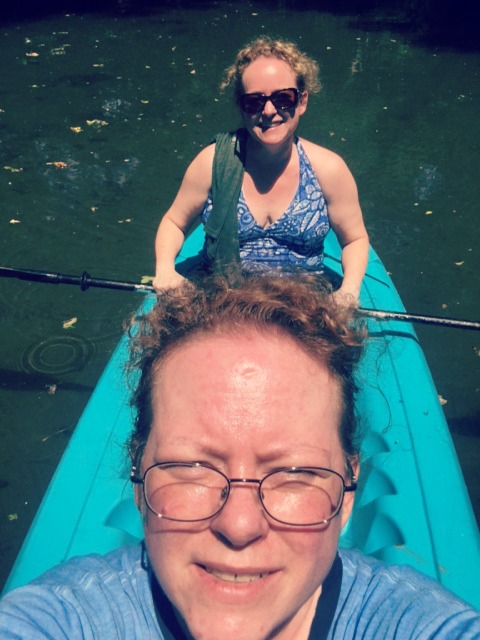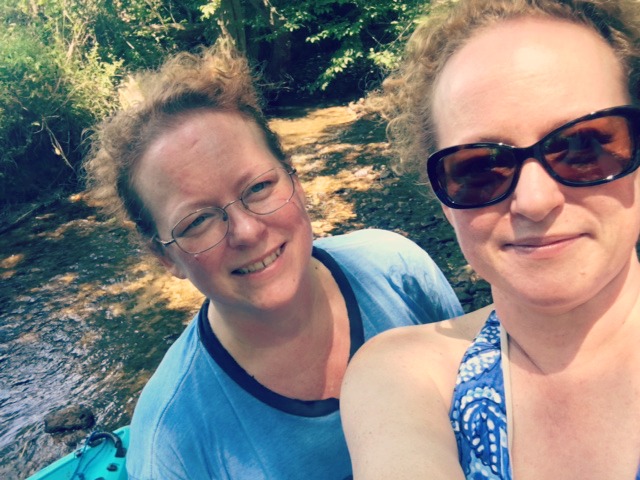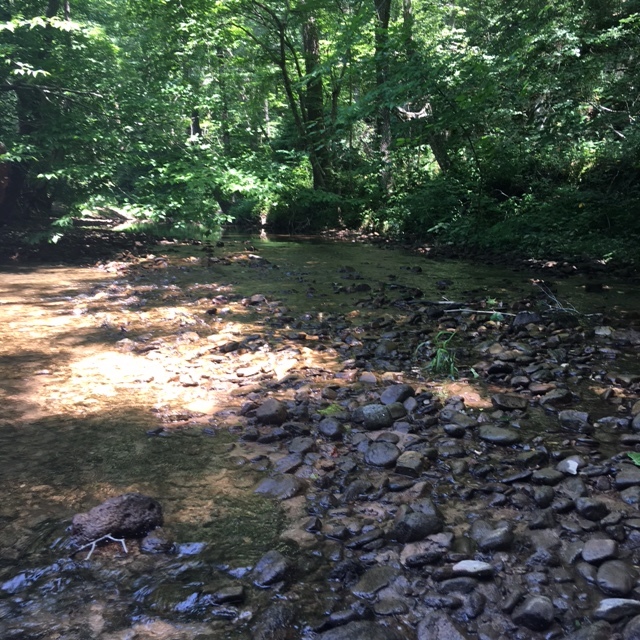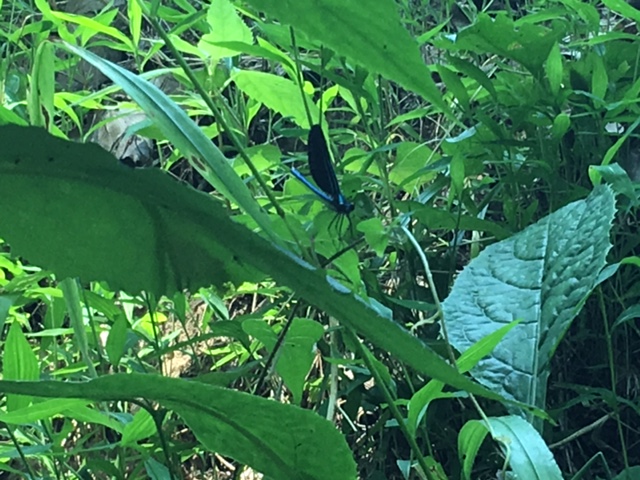Schedules
I’ve struggled for years to come up with a consistent routine. Working at home means there’s not a lot of rigid structure, and having two jobs means there’s a lot to juggle. Recently, though, I got some advice that has made a tremendous difference in my day:
First things first.
For me, a positive life means putting the most important things first in my day. When it comes to my work, the highest priority for me is writing, so after the family leaves in the morning, guess what I do?
Sit down and write.
When your schedule is hectic or chaotic, what’s your priority, the first thing you want to focus on in your day?
Blank Spaces
As I’ve followed my journey toward a more POSITIVE LIFE this year, I’ve noticed something: when I don’t have anything to do, it stresses me out. I don’t know what to do with the blank spaces in my life, the times when there’s no work to do, no TV to watch, no book to read. And yet, we are learning more and more about the negative impact of so much input into our lives through TV, social media, the doing and having and seeking more and more and more.
Creativity requires blank space. We look at the first page of a new book, all that fresh white space, and freak out. The blank page is so hard! But without a blank page, a new book doesn’t come into being. Our brains need that blank space too, to stretch and grow and create. To rest.
Have you found that quiet and “blank space” are positives in your life? How do you go about creating those opportunities?
Positive Life
Thanks to the totally fantastic Maggie Coughlin Worth and her common sense guidance, I’ve learned that a POSITIVE LIFE needs REWARDS.
I work a lot. My day job, though it’s from home, is full-time. Writing is also a full-time job, though the actual words on the page are a tiny fraction of that. So getting to run away from all the work and actually just write is a reward for me. Twice a year I give myself a retreat—and it is oh so wonderful.
Last fall I found a little cabin in the woods (NOT like the movie!), and this month, in celebration of our birthday, I took my sis Dani Wade there for a writing retreat. You can see from the pics that we had a great time! Writing, reading, plotting (and not just books 😉 ), exploring, wading. So much fun!
What about you? Where do you go to get away? What do you love to reward yourself with?
Celebrate the Positive Stuff
One of the things I’m trying to learn this year as I work toward a POSITIVE LIFE is learning to let go of the need to control everything.
Yeah, I had to laugh at that a little bit.
I am the queen of control. Nothing causes me more stress than a situation I can’t control. Actually, I think that’s true for most people. I’m slowly learning to sift what I can control and what I can’t, and breathing away the frustration of what I can’t. One example: I can’t control how many words flow from my fingers into my manuscript every day. What I can control are the hours I put in at the computer. It’s frustrating sometimes—I want to make faster progress, get farther, finish sooner. But I can’t.
On the other hand, sometimes I get a surprise: more words than I wanted. And that’s a day to celebrate! 😊
Positive Life
Many people have talked this month about their “word for the year.” This is a concept I absolutely love, a way to narrow down your focus to one concept that you want to bring into your life. Too often we have 50 million goals and accomplish none of them. I like to focus in and actually get somewhere, LOL!
I have more than a word for this year, though. It’s a phrase: POSITIVE LIFE. I’m looking to inhale the positive and exhale the negative. Be happy with my life and my choices and my goals, and strip away the things that cause anxiety and stress and depression. What about you? Do you have a focus word or phrase for this year? Do you set New Year’s resolutions every year? I know I’m not the only one, and I’m hoping this year will be better and happier and more positive for us all!
What I've Been Reading: Writer's Doubt
So I took a little detour with my reading this month. I've been doing a lot of nonfiction reading lately. One day my sis, Dani Wade, sent me a text: "Go get this book!" The book? Writer's Doubt: The #1 Enemy of Writing (and What You Can Do About It) by Bryan Hutchinson. And you know what? She was 100% right.
So I took a little detour with my reading this month. I've been doing a lot of nonfiction reading lately. One day my sis, Dani Wade, sent me a text: "Go get this book!" The book? Writer's Doubt: The #1 Enemy of Writing (and What You Can Do About It) by Bryan Hutchinson. And you know what? She was 100% right.
I've been talking a little bit more openly about the struggles I've had with writer's block. I think the prevalence of so many writers who poo-poo the idea of writer's block only serves to make those of us who have experienced doubt ourselves more. And that doubt only serves to compound the probem. We who struggle in this area have to learn not only to tune out the naysayers and root out the sources of our blocks, but we also have to combat the doubt that can creep in.
Writer's Doubt begins with Bryan's story of how he came to be a writer. One of the things I love is that Bryan says something in the beginning of the book that I've come to realize myself over time:
...if we keep our stories, our feelings and our experiences hidden inside of us, it is much more difficult to heal and find answers. So many people remain secretive, so secretive that they’re never able to actually seek help for their internal conflicts. If you want to be honest with your readers and yourself, put everything on the page and leave your comfort zone behind.
Now, this is probably targeted toward nonfiction writers, but as a romance writer, I've found that a lot of the emotions I've experienced over time tend to come out on the page. Not as exact experiences, and not as a one-to-one translation, but they do come out. Take Me began with the idea of a mother who lost her child. I also lost a child, not the way Peyton did -- her child was kidnapped; mine died -- but I found myself thinking of those emotions, drawing them out like you would draw out poison, as I put words to the page. Facing our past helps us heal, and writing can help us do that, whatever form it takes.
Of course, the book isn't just about emotions and memories. It's full of tons of practical advice. Ways to write when you're blocked (notebooks, journals, nonwriting options), where to write. The section on writing rituals and getting into the writing zone reminded me I'd sort of abandoned that part of my early writing career when I got bogged down in a year's worth of edits. Practical advice on not only writing but publishing what you write. There is a lot of meat here, not just fluff.
My favorite piece of advice?
Your first draft is not crap no matter how far from perfect it might be.
There really is a ton of great things not just to learn but to really think about as you read this book. I'm not going to tell you any more. You need to go get it and learn for yourself, explore for yourself, consider things you never really considered about yourself. You'll come out the other side with a whole new outlook. :)
~ Ella










